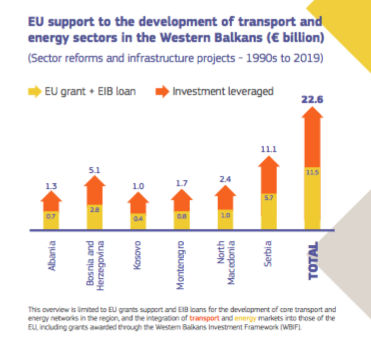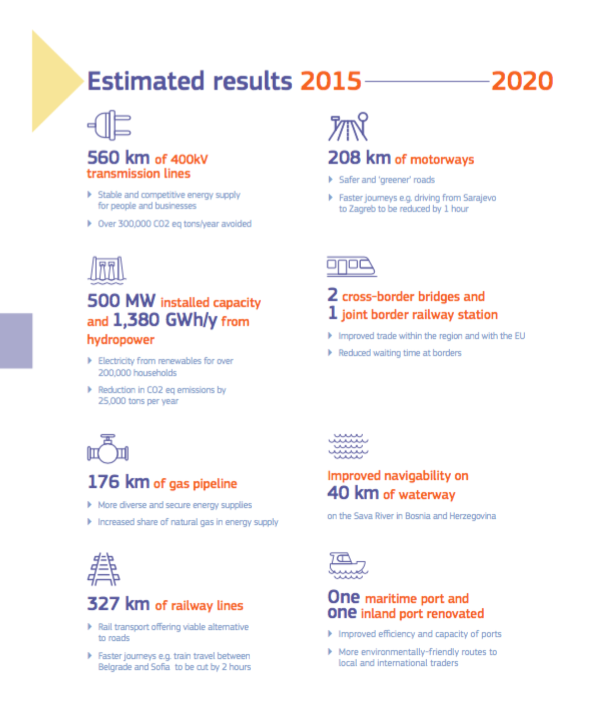Building on three decades of support
Since the 1990s, the EU has been supporting the Western Balkans in constructing and modernising its infrastructure. To date, more than €11 billion has been provided to the energy and transport sectors in the region, through grants from the European Commission and loans from the European Investment Bank (EIB). This has resulted in overall investment of €22 billion. With this financing, the EU has helped restore and construct roads, bridges, railways, electricity lines and gas pipelines – all of which are essential for connecting the Western Balkans with one another and with the EU.
The EU provides significant financing in the form of non-repayable grants, which are o en combined with concessional loans from International Financial Institutions. This contrasts with funding owing into the region from other parts of the world, which comes almost exclusively in the form of loans. In addition to financial viability, EU grants and loans are also dependent on expectations linked to environmental footprint and treatment of workers.

The Connectivity Agenda
The Connectivity Agenda set out to address gaps in the core transport and energy networks through financing actual investments. In the transport sector, those investments target key road and rail routes, inland waterways, and key ports. In the energy sector, they involve electricity and gas transmission, as well as the generation of renewable energy.
With the launch of the Digital Agenda for the Western Balkans in 2018, the EU also increased technical assistance to the roll-out of broadband networks in the region. Digital technologies o er opportunities for growth and job creation, helping to bring people and enterprises into the 21st century.
Key achievements 2015-2020
Since the launch of the Connectivity Agenda in 2015, over €1 billion from EU pre-accession funds has been allocated through grants to designated high priority connectivity projects. This has not only delivered better infrastructure across the Western Balkans region, but also driven forward integration with core transport and energy Trans- European Networks. Together with loans of partner Financial Institutions, these grants have leveraged €3.7 billion in key infrastructure investments, and created more than 45,000 jobs in the Western Balkans region.
This investment has translated into substantial activity on the ground, with 45 projects now approved, and many underway or about to start. This includes dozens of major road schemes and rail interconnections, and upgrades at ports. Transformational energy projects are set to result in 500 MW of installed electricity capacity and almost 1,400 GWh/y of energy production from hydropower, as well as two major gas pipelines connecting the region and neighbouring EU Member States.
The Connectivity Agenda set out to address gaps in the core transport and energy networks through financing actual investments. In the transport sector, those investments target key road and rail routes, inland waterways, and key ports. In the energy sector, they involve electricity and gas transmission, as well as the generation of renewable energy.
